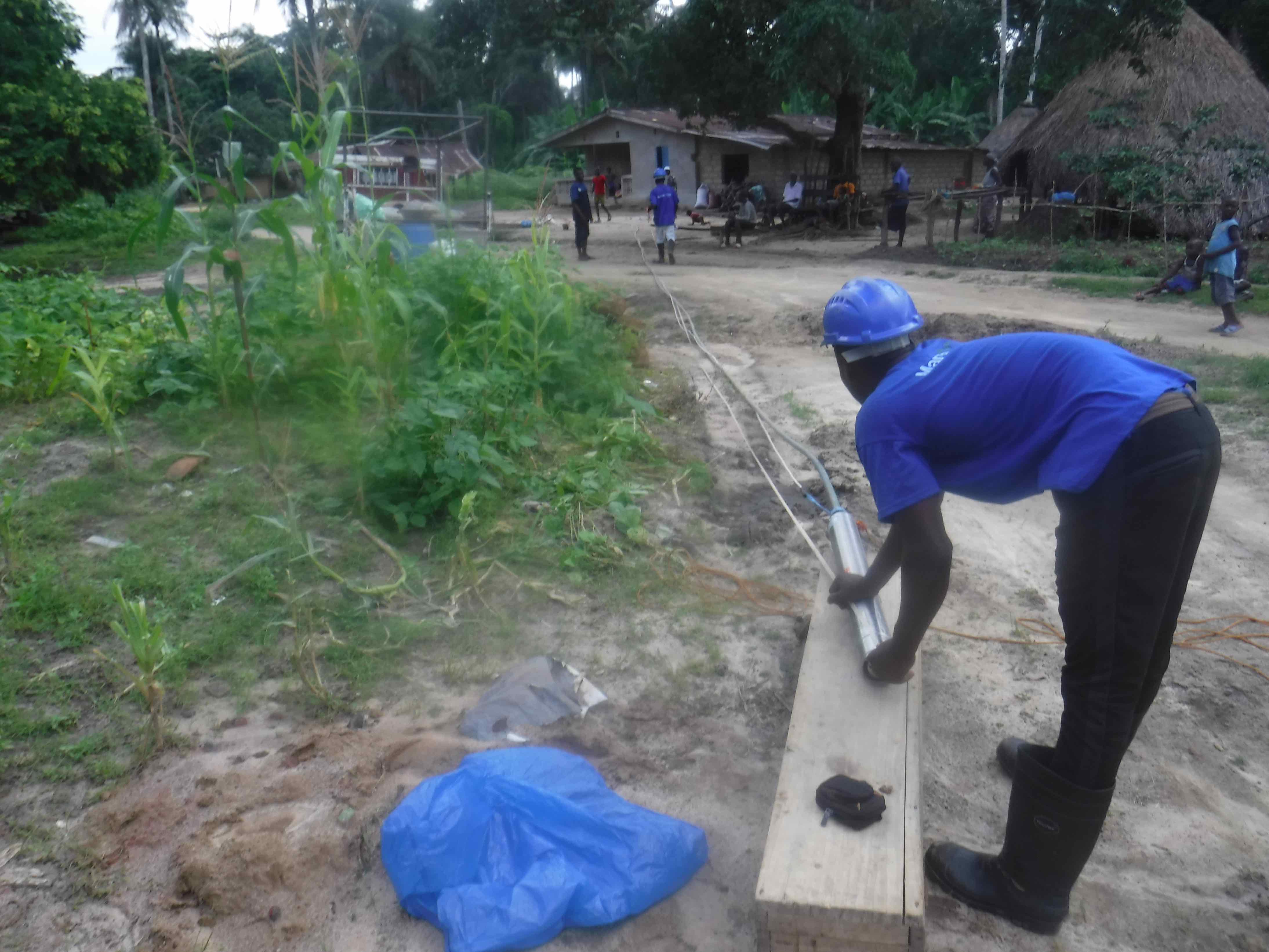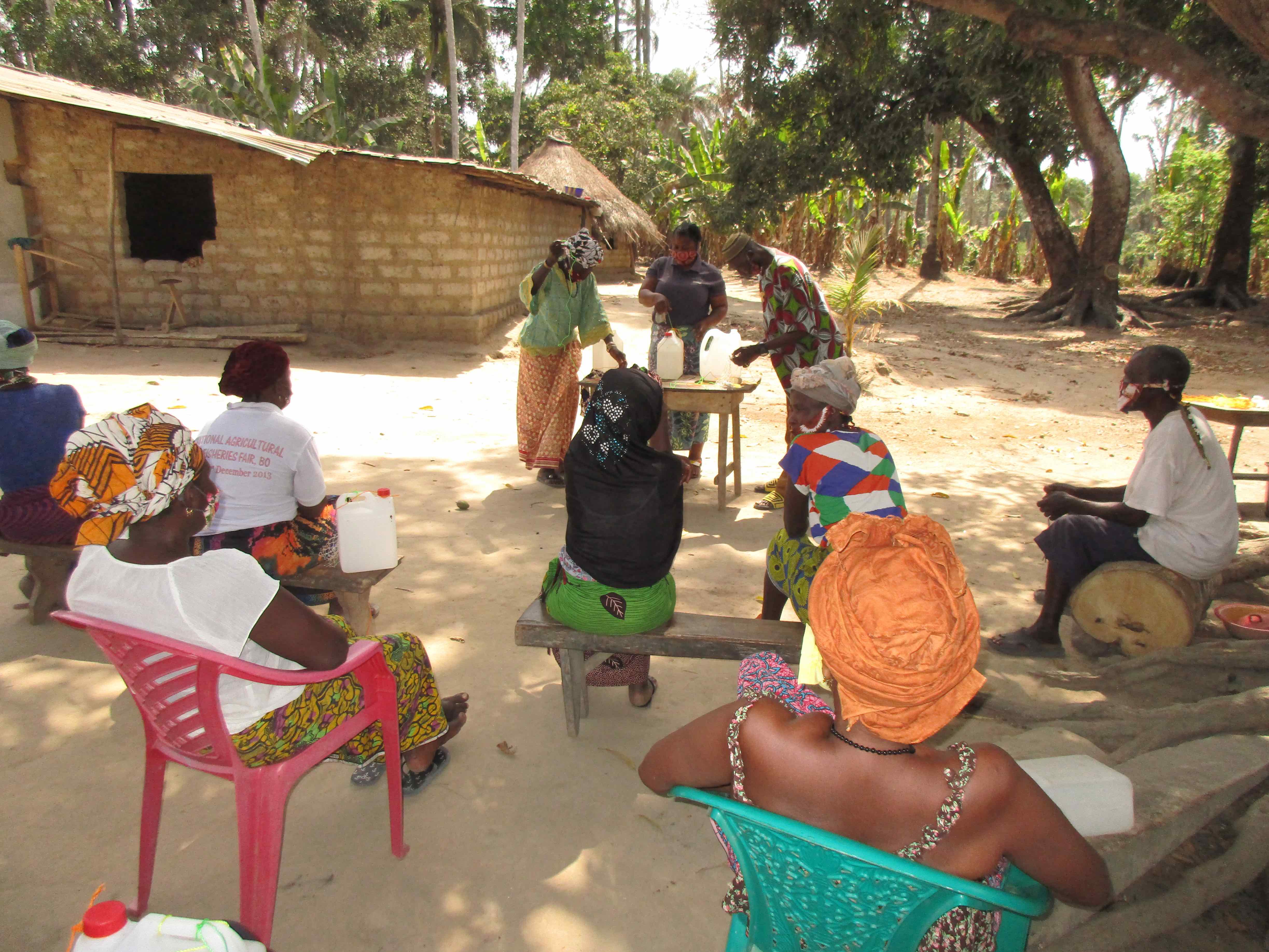The most common livelihood in Lumpa Wallah Village is farming; rice farming in the swamp, and dryland farming. A village with close to 800 people come together to work as one unit. Working to empower and develop all members of the community. They take turns working for one person, and the next day another person is helped to till and cultivate the land. Swamp farming takes a lot of time and hard work, making it nearly impossible for men to age without having intense back and hip pain.
One thing holding this community back is the lack of access to safe water. The current hand-dug that most people use for water is open contamination and located in the village's upper part. The person fetching water stands with feet spread shoulder-width using a bucket tied to a rope. The environment is dirty, with mud clinging to the sides and bottom of the bucket.
"I am always late for school because I have to do a lot of work before going to school in the morning," said the son of Abu Bakarr Kamara, the village Headman.
"I get up very early in the morning to stand in the long lines for water, and if I get up late, which happens often, I usually go to the swamp. I hate standing in line and wasting time."
According to the community's people, the quality of water over the years has greatly depreciated, causing a muddy and mildew smell to the water. The reported health issues are staggering. With long term use of contaminated water, the people are susceptible to waterborne illnesses such as diarrhea, dysentery, cholera, typhoid, worms, and other parasites.
The people on the far end of the village have to walk a long distance to fetch water that is unsafe for drinking and unreliable - the well runs dry often because it is not deep enough. Some people prefer going to the swamp to fetch water instead of walking and waiting for the long lines.
"Over the years, the population has more than doubled, and our need for clean water has also doubled," explained Abu Bakarr Kamara.
He described how he spends most of his time settling disputes that arise at the well. This community is extensive and requires clean and safe water. With a borehole in the community, it will greatly help to alleviate the seasonal well. The effects of global warming are fast deteriorating our way supply this, making hand-dug wells obsolete. A borehole is going to provide water to the community all year round.
What we can do:
New Well
We will be drilling this well at Lumpa Wallah village. This project will relieve the people here of their water challenges.
Our team will drive over the LS200 mud rotary drill rig and set up camp for a couple of nights. Once the well is drilled to a sufficient water column, it will be cased, developed, and then tested. If these tests are positive, our mechanics will install a new India Mark II pump.
This community has been pushed to open contaminated well for their water. By drilling this borehole, Lumpa Wallah village will be provided with plenty of accessible clean drinking water.
Training
There will be hygiene and sanitation training sessions offered for three days in a row.
Community members will learn how to make a hands-free handwashing station called the "tippy-tap." We will use these tippy taps for handwashing demonstrations and will also teach about other tools like dish racks and the importance of properly penning in animals. We will highlight the need to keep latrines clean, among many other topics.
This training will also strengthen a water user committee that will manage and maintain this new well. They will enforce proper behavior and report to us whenever they need our help in solving a serious problem, like a pump breakdown.

 Borehole Well and Hand Pump
Borehole Well and Hand Pump
 Rehabilitation Project
Rehabilitation Project

























